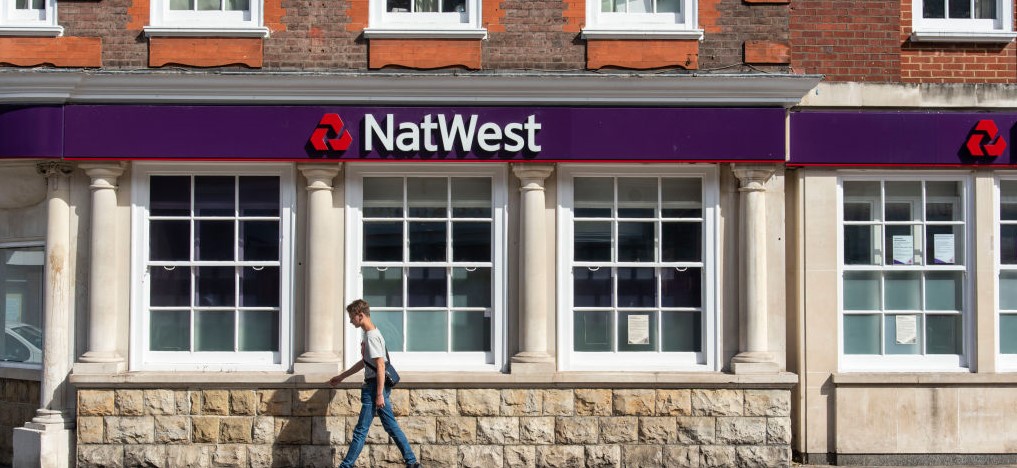The madness of sell-off king George
They say that the definition of insanity is to repeat the same action and expect a different result. If that’s true then George Osborne’s Mansion House speech presented a particularly acute case of economic madness.
It was here that Osborne announced the fire sale of the public’s share in the Royal Bank of Scotland. Since the taxpayers bailed out RBS to the tune of ÂŁ45bn in 2008, the government have held an 80 per cent share in the bank. This bailout saved the bank from the mismanagement of its own executives, including such luminaries as Fred ‘The Shred’ Goodwin.
You’d be forgiven for believing that seven years on Osborne’s sell-off must mean that Britain’s banks have been purged of all that led to such bedlam in 2008; deregulation, bloated bonuses, toxic debts and a willingness to gamble money that makes Las Vegas seem puritan.
In truth the Chancellor is selling our share in RBS at a massive loss. The government purchased RBS at 502p-per-share, but this week shares were valued closer to 357p. The New Economics Foundation estimate this will result in a ÂŁ13bn loss to the taxpayer.
Pure ideology
That Osborne is choosing to let the Treasury lose out on millions, while using the deficit to justify ÂŁ12bn in welfare cuts shows he is motivated by pure ideology.
Therein lies the madness. Osborne’s ideology has already brought us the failed privatisation of Royal Mail. It is the same ideology which ‘Told Sid’ about the sell-off of British Gas in the 1980s. Who would now claim that a private energy sector which forces pensioners to choose between heating and eating is a success story our banks should imitate?
Yet the sell-off of RBS is more than just another front in the Tory’s austerity offensive. It is the squandering of a historic opportunity to use the public sector to fix Britain’s banks.
The story of Britain’s banks after 2008 is a tale of two completely separate worlds, that of the boardrooms and that of the bank branches. Paul Mason summed this up when his report on the November rate rigging scandal prompted a rant shared by 203,000 people.
“I’m just sick of it,” declared an exasperated Mason. “We really deserve a better banking system, because everyone on this street who doesn’t work in it is reliant on it.”
Who doesn’t share Mason’s frustration? Since 2008 there has scarcely been a week when the misconduct of bank executives hasn’t been splashed on the front page.
Banks have been fined millions for misselling PPI, while traders have rigged Libor rates. Even the unfolding corruption scandal at FIFA has managed to drag at least two City banks into its maw.
What has been done? Since 2008 regulators have attempted to force a separation between high street banks and their riskier investment arms. Some banks, most recently Lloyds, have received fines into the hundreds of millions for misselling financial products.
Meanwhile the banking levy, which raises nearly ÂŁ4bn each year, is an attempt to make the banks pay off their debt to society.
Yet, because the culture in the boardrooms has gone unchallenged, executives have been able to carry on as before while handing down the costs of fines and levees to frontline bank staff.
While executive pay and bonuses continue to rise, we see bank branch closures and job losses across the country. The Campaign for Community Banking Services reports that 1,200 communities have lost all their banks since 2008. Remaining staff face continual attacks on their wages, pensions, terms and conditions.
Osborne’s actions make it clear that we cannot rely on the Tories to reform the banks we all rely on. Any moral appeal will fall on closed ears. Change must come from within.
The public behaviour of any organisation is a reflection of its internal organisation. Since the 1980s decades of mergers and takeovers have transformed regional banks into global institutions where pay and power are polarised and concentrated at the top.
When power is polarised and executives feel untouchable they will act accordingly. However, when the workforce is organised those executives can be held to account and they will act more responsibly because of it.
If you have a bank account, savings or a mortgage you have a stake in a responsible banking sector that works for all. To achieve that we must support the many of thousands of dedicated bank staff who are coming together, unionising and campaigning for change within their industry.
With your support we can have the banking sector we deserve.
This is an updated version of a feature that first appeared in Huffington Post June 10, 2015
 Like
Like Follow
Follow

